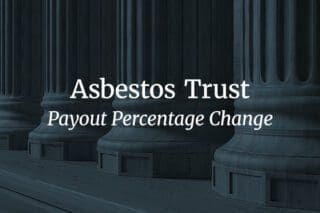Eleven Statesville condemned homes were hoped to be burned and used for fire training, but asbestos has stopped the plan. Statesville Fire Department Chief Spencer Lee said, “Most of the buildings are too structurally damaged to qualify for live burning training.”
Out of 11 houses, eight tested positive for asbestos. The North Carolina Department of Health and Human Services cannot approve demolition or live burns until the asbestos is removed.
A recent study conducted by the Centers for Disease Control revealed firefighters are more likely than the general population to be diagnosed or die from cancer, including mesothelioma.
The dangers of asbestos were not widely known in the mid to late 1900s, so the necessary precautions were not taken. This greatly increased the chance of mesothelioma cancer developing in firefighters’ lungs from breathing in asbestos fibers on-site and on their gear and clothes.
The most common place a firefighter will encounter asbestos is in the initial stages of extinguishing a fire. Burning asbestos materials can damage asbestos to the point where the fibers are easily released into the air.
“Officials can’t tear down those buildings until the asbestos is professionally removed, a process which can take several months,” said the city.
Councilman Michael Johnson had proposed burning down the buildings at the last city council meeting. He stated, “It’s significantly cheaper to burn the houses, so it would behoove us if we’re going to demolish this many units that we reduce our costs.”
The North Carolina Division of Air Quality must also approve the fire training operation. If the division feels the training isn’t the main purpose of the burn, they will deny it.
Today, firefighters still face dangers of asbestos exposure on the job regularly, even when the use of the substance has been significantly restricted. Many structures contain asbestos-ridden materials, including insulation, roofing, flooring, and siding.
Most protective equipment used will eliminate risk of inhalation, but burned asbestos products can continue to release fibers into the air even after the flames have been put out and as debris is slowly cooling off.
Work is being done. U.S. Senator Gary Peters, D-Michigan, co-sponsored legislation to create a national registry to monitor cancer diagnosis in firefighters. The bill is supported by several firefighter organizations.
The information will be used to research techniques, improve on-the-job safety, and help prevent and treat life-threatening illnesses and health consequences firefighters might face long-term.





